The Twelve Apostles Stone Circle
This day would be much less aggressive than the previous. Our first stop is the
Twelve Apostles Stone Circle. It lies near
Dumfries, Scotland and is not only the 7
th largest stone circle in Britain but also the largest on the mainland of Scotland. (The
Ring of Brodgar is the largest in Scotland, but, of course, it lies in the
Orkney Isles.) Its southwesterly arrangement aligns it with the
midwinter sunset.
On arriving the first thing we did, of course, was count the stones...all
eleven of them. A plan taken by
Francis Grose in 1789 shows
twelve stones; however by 1837 one of the stones had been removed. Local legend has it that the 12th stone was that of
Judas Iscariot. How that is known and the whereabouts of the stone is unknown.
The circle measures 293 feet at its maximum diameter; however it is not a true circle as one of the northwest stones is moved to align with the adjacent stones for reasons I cannot discern. The tallest stone in the circle measures about 6'3" in height. There are two other circles nearby but they are not easily accessed.
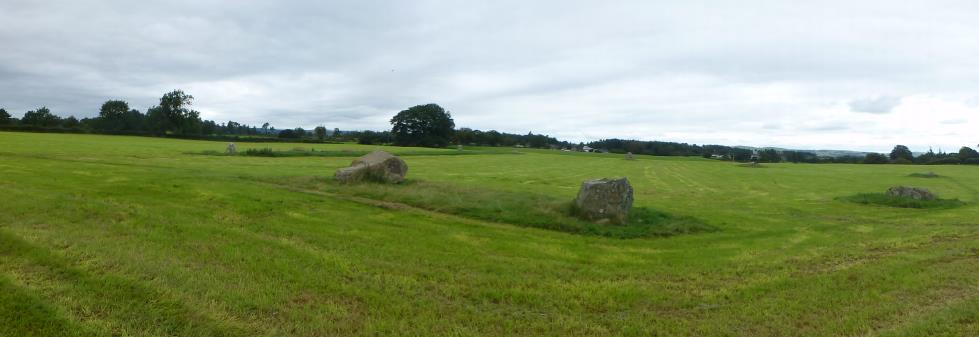
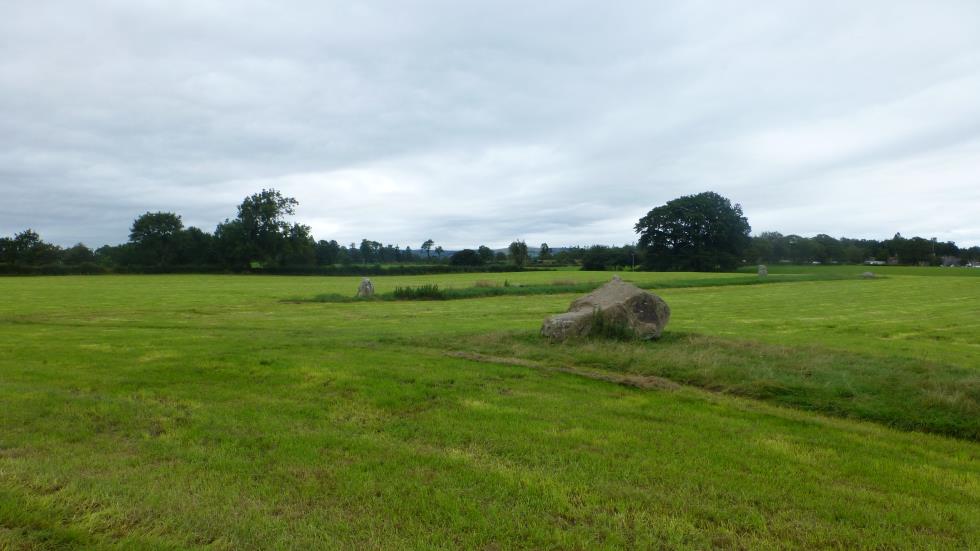
Caerlaverock Castle
Next on our route was
Caerlaverock Castle, truly the most unique of any castle I have visited. (Also possibly the
loveliest named castle I have visited.) Located on the southern coast seven miles south of Dumfries, it is
triangular in shape and if fully surrounded with an operating moat (it has water in it). Built in the 13
th century, Caerlaverock was a stronghold of the
Maxwell family. It was Besieged by the English during the Wars of Scottish Independence (think William Wallace and Robert the Bruce).
In July of 1300
King Edward I of England (Longshanks) marched north with a large army that included eighty-seven Barons and several knights and laid siege on Caerlaverock. Under their chief Sir Eustace, the Maxwells repeatedly turned back the English army. When finally compelled to surrender,
Longshanks found that his entire army had been repelled by but
sixty men (though, of course, they were Maxwells).
"...Maxwells, Gordons, all are thine
Bonnie Galloway"
Unfortunately, as with many of the other Scottish sites, this one was closed to the public. However, the castle from the outside was still quite impressive.
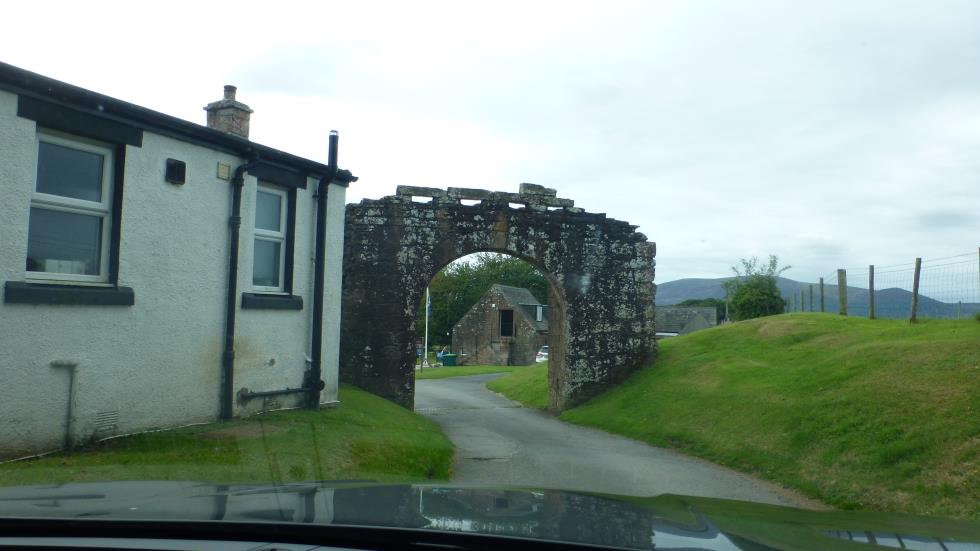
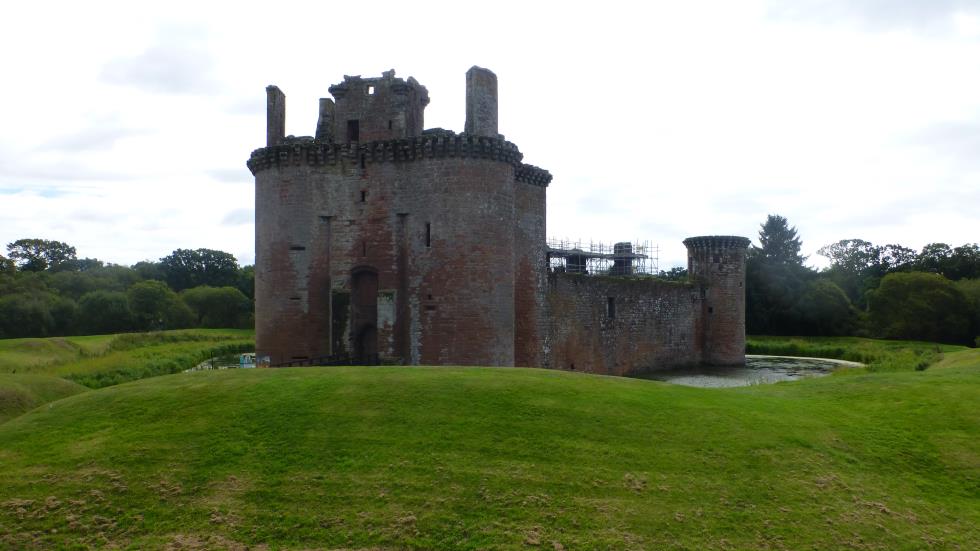
Lochmaben Castle
Our last stop on the southern leg of our tour is
Lochmaben Castle. (Even though it lies on the shore of what Google Map calls Castle Loch?). Built in the early 14
th century by
Longshanks (also known as
The Hammer of the Scots), it replaced an earlier
motte and bailey castle built south of the current castle in c.1160 by the Bruce family,
Lords of Annandale. The castle was seized by Lord Maxwell, seeking to overthrow the Protestant monarchy in 1588. In response James VI besieged Lochmaben with the assistance of English forces.
Lochmaben Castle remained important with a turbulent history until some time after the early 17
th century.
King James I allotted
£1,600 sterling for its repair in 1624 but it was never put to use. Today it has fallen into total disrepair and is not accessible to the public.
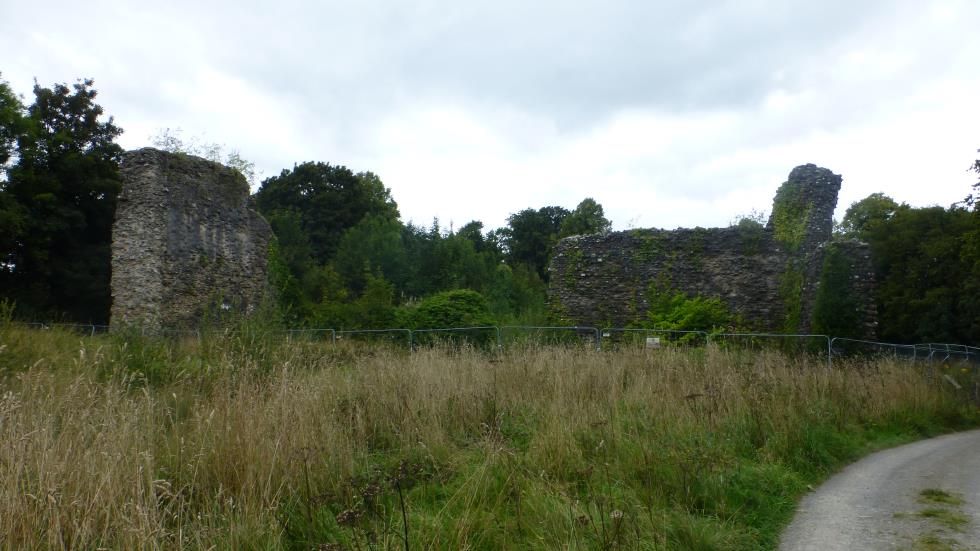
Lockerbie
From Lochmaben, we took a detour to
Lockerbie for some lunch. Here we found a small diner and had a light meal. In fact, after a bowl of soup, my illness had advanced to the point that I had no appetite for the Cuban sandwich I had ordered.
On a sad note, you might remember that Lockerbie was the site of the crash of
Pan Am 103 in Dec of 1988. Through diligence using highly technical search methods, the cause of the crash was traced to a bomb set by
Libyan agents. One of he agents was acquitted while the second was found guilty and sentenced to 27 years in Scottish prison. In 2009 he was diagnosed with terminal cancer and was released from prison in Scotland on compassionate grounds and allowed to return to Libya (at the protest of the U.S.). 259 passengers aboard flight 103 and 11 people on the ground were killed. We made a brief stop at the wee monument.
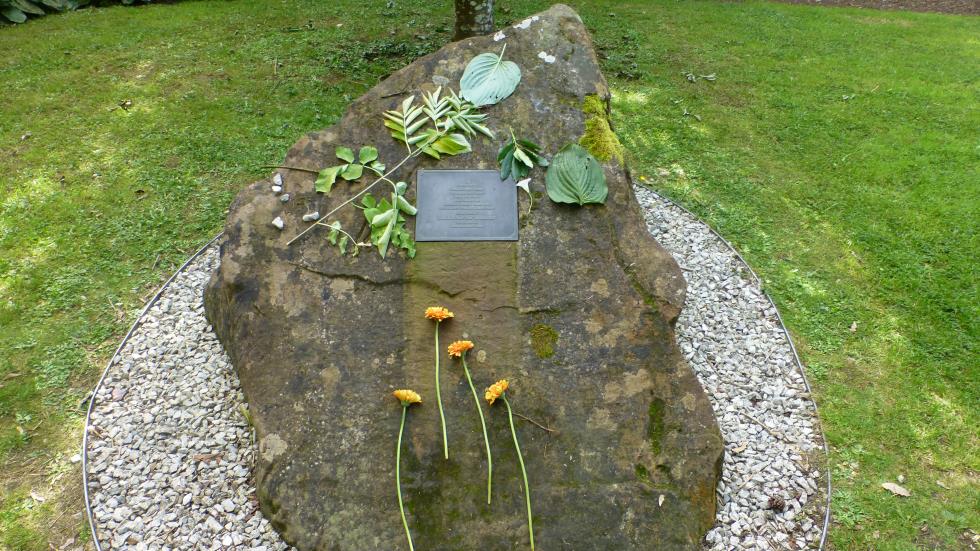
We arrived back at Oak Cottage and had a light meal at the cottage. Unfortunately, Day 7, our last full day at the cottage, would be a
bust. My illness was at the point that I did not feel up to driving any distance nor walking when we got there. We spent a day watching Scottish TV. The next posting will be Day 8.



 To Day 8 - Dunfermline and Edinburgh
To Day 8 - Dunfermline and Edinburgh